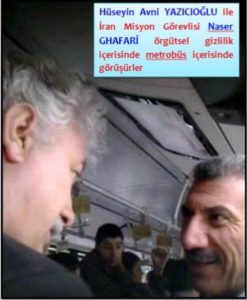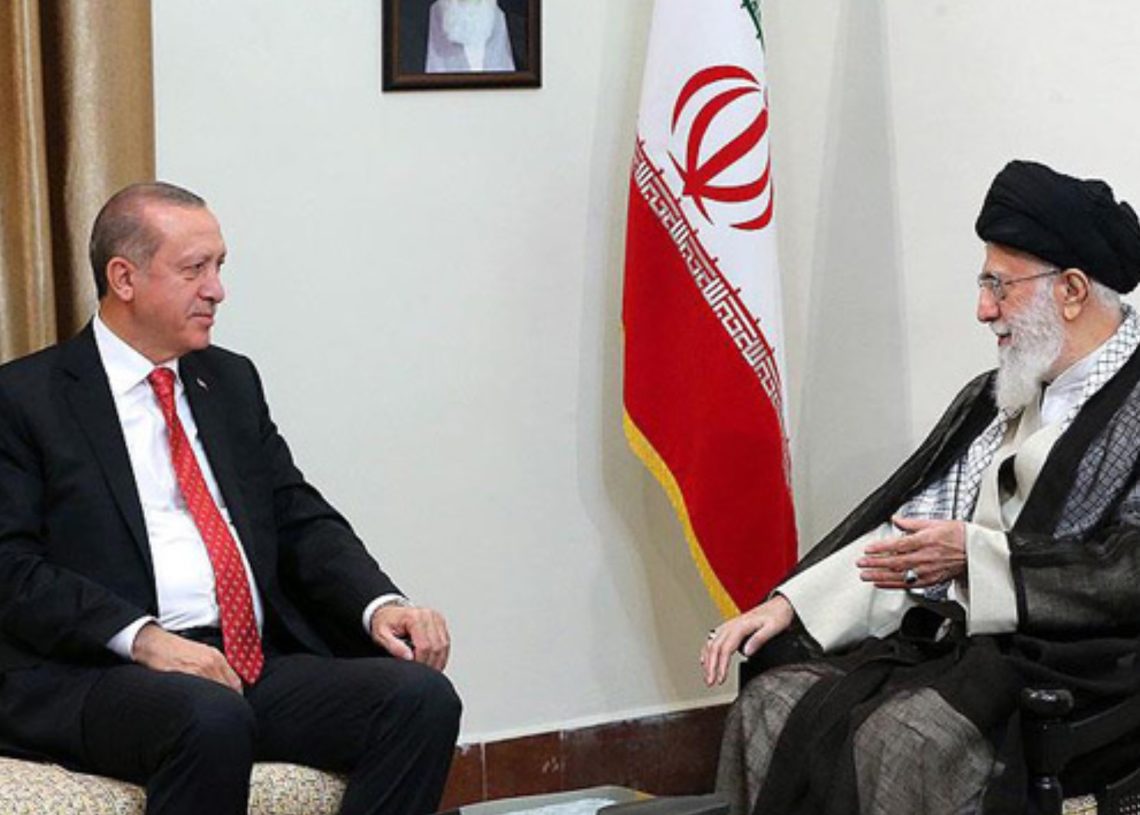In recent years Turkish President Recep Tayyip Erdoğan has been relentless in his efforts to deliver on a secret promise he made to his inner circle a decade ago, which was to disrupt the NATO alliance when he had a chance and consolidate his power.
Ahead of the upcoming summit of NATO leaders on June 14 in Brussels, President Erdoğan’s track record shows that he has to some extent fulfilled his promise by driving a wedge between NATO allies and Turkey on a number of issues.
The promise was uncovered in 2011 by Turkish investigators who were probing Iran’s Islamic Revolutionary Guard Corps (IRGC) Quds Force network in Turkey.
“When I get a chance, I know what to do with NATO, Europe and Israel. I’m going to f*ck their mothers. NATO and the US are as terrorist as Israel,” Erdoğan, then prime minister and running the government, told his loyalist lawmakers in a private meeting.
The outrageous remarks that were uttered by Erdoğan were delivered during a conversation about the proposed establishment of a new radar base in Malatya’s Kürecik district as part of NATO’s missile defense system, which works with missile interceptors in Romania and Poland.
Erdoğan was clearly not happy with the NATO plans laid out at the 2010 Lisbon leaders summit but at the time felt he had to go along with them in the face of pressure from the military and other government agencies that considered Iran a threat to Turkey’s national security. The Turkish government had long talks with the US, in particular over naming Iran as a threat to the alliance and the possible sharing of intelligence with Israel.
Erdoğan was particularly feeling the heat domestically from the Turkish military, which supported the NATO project, and he had not consolidated enough power in his hands to overcome this resistance. In September 2011 Turkish officials signed a memorandum with the US on the deployment of the American radar in Kürecik as part of a NATO-backed missile defense system designed to protect European members of the alliance from missile threats.
Hayrettin Çakmak, a hard-core Islamist deputy from Bursa province and a suspect in the IRGC investigation, was among the attendees of the private meeting with Erdoğan. The other lawmaker was Seracettin Karayağız, a deputy from Muş province and another Islamist politician.
On October 19, 2010 both lawmakers reported what Erdoğan told them about the radar base to a senior Quds Force asset named Hüseyin Avni Yazıcıoğlu, a convicted felon who had served time on terrorism charges in connection to the Quds Force in the past. The meeting was held at a venue on Istanbul’s Çamlıca Hill, which overlooks the Bosporus. Yazıcıoğlu later compiled a report about the details of the conversation and turned it over to his handler, Naser Ghafari.

The report along with dozens of other intel documents collected by Yazıcıoğlu was obtained by the police when Yazıcıoğlu’s disgruntled wife Kamile decided to blow the whistle on her husband after the two had marital problems. The police initially did not pay much attention to the wife’s allegations, and the local law enforcement in Bursa, where she first reported battery by her husband, treated the case as a simple domestic disturbance.
However, when the wife handed over documents, handwritten notes and digital materials such as flash drives, the police realized the seriousness of the matter and notified the Istanbul police counterterrorism department, which was working on a Quds Force investigation. The police conducted its own independent investigation, wiretapped the Yazıcıoğlus’s phones, ran surveillance on the Iranian handlers and other suspects and verified the wife’s allegations. To the surprise of investigators, Yazıcıoğlu turned out to be a close friend of Hakan Fidan, head of Turkish intelligence agency MIT.
Erdoğan’s private thoughts about the NATO radar base were discovered on a flash drive provided by the wife to the Istanbul Police Department in 2011. A police report dated November 25, 2011 and authorized by the Istanbul 14th High Criminal Court showed that IT specialists had recovered all the documents from the drive including those that had been deleted. The report, entered into the evidentiary file as part of criminal investigation No.2011/762 and pursued by the Istanbul Chief Public Prosecutor’s Office, revealed that Yazıcıoğlu had collected a wealth of intelligence in Turkey.
According to the police report the document titled “FÜZE KALKANI GÖRÛŞLER.doc” was created on October 21, 2010 and accessed for the last time on July 3, 2011. A full translation of the document reads as follows:
“Location: Istanbul, Çamlıca Hill.
“Date: 19 October 2010
“Seracettin Karayağız, deputy from Muş province / Hayrettin Çakmak, deputy from Bursa (and seven acquaintances]
“Seracettin Bey says Turkey had in the past turned its Iranian border area into a front line [battle] for the US, Europe and Israel. But today Turkey does won’t allow this area to become a front line and is resisting such attempts. It is even going beyond this by rapidly strengthening its ties with Iran and other neighboring countries, establishing economic, political and military relations and strengthening them.
“At this time, the US pressure on Turkey for a missile shield is not well intentioned. In the background of this demand that aims to contain Turkey lies an effort to sabotage our relations with our neighbors. As it was in the past, they want to put Turkey in a relationship of unilateral dependency [with the NATO/the West]. This situation is a trap that will destroy all the relations we have developed over the last eight years. And Tayyip Bey is aware of this, thinks the same and says the same things.
(Here, Mr. Hayrettin intervenes in the conversation and adds that Prime Minister [Erdogan] said: “When I get a chance, I know what to do with NATO, Europe and Israel. I’m going to f*ck their mothers. NATO and the US are as terrorist as Israel.”)
“Seracettin Bey: They do not want a Turkey that will be self-sustaining. It’s also important to know that stopping Iran is an important objective for them, and for that it is imperative that Turkey side with them. Moreover, Mr. Tayyip does not want to lose anything from this point forward. He wants to be influential in Africa and the Middle East. If we take a step back as the US wants on this missile shield, we would be denying what we have said and done so far. The Tayyip I’ve come to know will spoil this [NATO plan].”
In 2014, Erdoğan managed to hush up the Quds Force investigation and dismissed the police chiefs and prosecutors who were involved in the investigation, which incriminated his senior aides. In 2016, he dealt a severe blow to NATO by launching a massive purge of almost all pro-NATO staff officers including two-thirds of all generals and admirals from the alliance’s second largest army using a false flag coup as a pretext.
President Erdoğan announced that his government would not comply with US sanctions on Iran and vowed to undermine them by working with the Iranian government. In an unprecedented move, Chief of General Staff Gen. Hulusi Akar visited his Iranian counterpart, who was also later received in Turkey. Multiple agreements with Iran were signed including security protocols.
Erdoğan also moved closer to Russia and even purchased a long-range missile defense system despite strong objections from the US and NATO allies. He used each and every opportunity to undermine the unity in the alliance by diverging from NATO values, objectives and strategic goals, clashing with NATO allies in Libya, Syria, the Aegean and the eastern Mediterranean.
President Erdoğan and his associates also started entertaining the idea of cutting off the access of NATO allies to Incirlik Air Base, where US and alliance troops were deployed, as well as closing the Kürecik Radar Base.
The alleged involvement of Incirlik, where troops and military assets of the US and other NATO allies were deployed, in the military mobilization of July 15, 2016 was an important part of the government storyline in the false flag coup, with Turkish officials publicly accusing NATO allies, especially the US, of being behind the putschist attempt. There has been no evidence presented by the government to support accusations that US or other NATO allies were involved in the military mobilization that night.
In January 2018 Foreign Minister Mevlüt Çavuşoğlu said on the TRT television network that he had delivered to then-Secretary of State Rex Tillerson the Turkish people’s demands regarding İncirlik during a meeting in Vancouver. In July 2018 Erdoğan for the first time raised the issue of closing İncirlik Air Base to the Americans, followed by similar comments from his neo-nationalist ally Doğu Perinçek.
By: Abdullah Bozkurt
Source: Nordic Monitor



